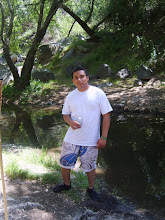Well I decided to do my senior project on the coral reefs because their beautiful place and it’s a big part of biodiversity because it is home to many species of marine life. I also decided to focus on it because the observed bleaching affect on the reefs is due to the changes in the sea level, elevated storm frequency and intensity, altered ocean circulations variations in precipitation and land runoff all of which have major impacts on the health on our coral reefs. “If the overall warming is accompanied by more frequent periods of sustained high temperatures, mass bleaching events will become more frequent and widespread. Increasing human stresses such as pollution, overfishing, soil erosion, and physical damage from boats and other recreational activities will also weaken corals, limiting their ability to adapt to climate change” (Hodgson, 1999; Nurse et al., 1998). I feel by 2110 that many reefs won’t have a chance to survive if we don’t step up our efforts to protect our reefs because it’s not just a polar bear that global warming is effecting, but the reefs are a major part of our oceans. Our coral reefs house 25 percent of all species of marine creatures. Without coral reefs like the Great Barrier Reef, we can lose marine life and resources we use and this can destroy an ecosystem but also the way we see marine life. From most of my sources, I got that many of the topics were about the problems yet to come if we don’t start protecting our oceans.
pull qoute
"Studies indicate that most coral are likely to recover from bleaching if the temperature anomalies persist for less than a month, but the stress from sustained high temperatures can cause physiological damage that may be irreversible" (Wilkinson et al., 1999).
Subscribe to:
Post Comments (Atom)


No comments:
Post a Comment